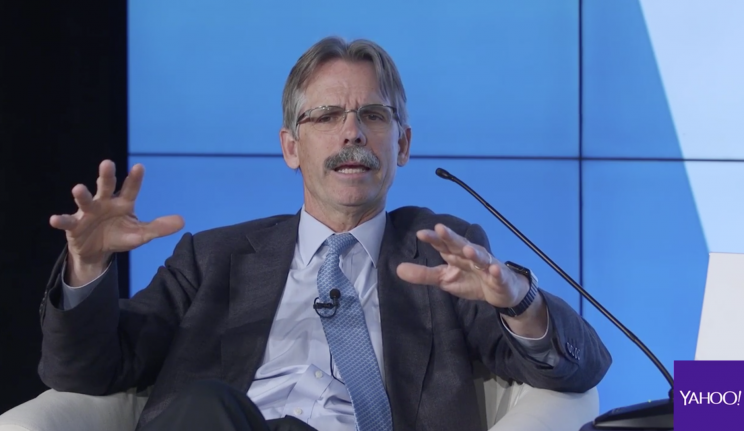Glenn Hutchins: How an 'awful' job can actually pay off
Glenn Hutchins, tech investor and co-founder of Silver Lake Partners, has some advice for young people starting their business careers. And it doesn’t necessarily include working for a big bank.
In a recent interview with me at the Asian Cultural Center in New York City, Hutchins spoke about banking and the beauty of now being able to do whatever he wants. One highlight was when I asked him about working at Chemical Bank where he started his career in 1977.
“It was awful,” Hutchins said.
Wow.
Why?
“Well, coming to New York and getting involved with finance and stuff, that was great and fun and interesting,” he explained. “And by the way, in those days, the investment banks had yearlong training programs, which were very much the equivalent of a first year of an MBA today. I focused on credit analysis. So that was pretty good. But I was clearly not constituted to work in a large organization. I was more of an entrepreneur, was more independent-minded. And in those days banks were very slow-moving, bureaucratic, lethargic, hierarchical. And it just wasn’t much fun.”
Hutchins, who helped run Silver Lake — the giant private equity firm whose portfolio companies have included Dell, Skype, Seagate and many others — also said that banking back then was an environment where golfing skills mattered. And it was at the expense of brainpower.
“I did quite well in the training program, which means: what you do with your best student is you give them the worst jobs. Right? And so I got a job as a credit analyst. So I would literally sit in the basement and have to do credit analysis of company after company, while all the people with lower IQs and lower golf handicaps than mine got to go call on customers and try to do business,” Hutchins said.
I wondered what happened to those people.
“They could get promoted because they were generating profitability,” Hutchins said. “I couldn’t because I was only generating intellectual product. And so I had to leave to get ahead.
“The business analytics that I took with me proved to be invaluable over the course of my career because it became increasingly less about a good handshake and a good golf game, and a lot more about analyzing cash flows and understanding enterprise values.”

“Put one foot ahead of each other every day”
I asked Hutchins if he thought it was at all worthwhile for young people to go work at a large Wall Street bank.
“I think so. I mean, it depends. Right? You can get very good grounding and experience and learn a lot about making investments, but you’re not going to move up as rapidly. You’re in much more of a hierarchical large set of organizations today than you were 35 years ago.
“I think of my life as an adventure, not a commercial enterprise,” Hutchins said. “And you just go find the next interesting, fun, dynamic thing to do. And you stitch those together at the end of time and you have had a great life.
“The other way I think about it is if you put one foot ahead of each other every day, or you get one step ahead of your competition every day, you wake up one day and you can’t even see them in the background. So you just get up every day and push forward, is how I think about it.”
“Pursue happiness”
I asked what advice he had for young people today, and if things are different today than when he was starting out.
“People ask me, ‘What do you do?’ And I say, ‘Whatever I want,’” says Hutchins. “And what I mean by that is, I get up in the morning and I do what I want do that day.
“I think you can think about that not just as the result of having a successful career that gives you a lot of freedom, but also you want spend your life doing what appeals to you, what motivates you, what makes you whole, what makes you feel accomplished, what makes you feel happy.”
Isn’t the whole game about making money though?
“A lot of people pursue money because they want money, or they pursue fame, or they pursue power. And because those are things they think they want to accumulate. I think what you want do is pursue happiness, and then what comes along with that is secondary but not primary in your career.
“And then two, I think you have to decide whether you want to be an entrepreneur or whether you want to work in a large company. There are good examples of both. A lot of people now want to be in startups. [But] it’s not for everybody,” says Hutchins.
Especially if you think the job is awful.
—
Andy Serwer is Yahoo Finance Editor-in-Chief. Read more:
